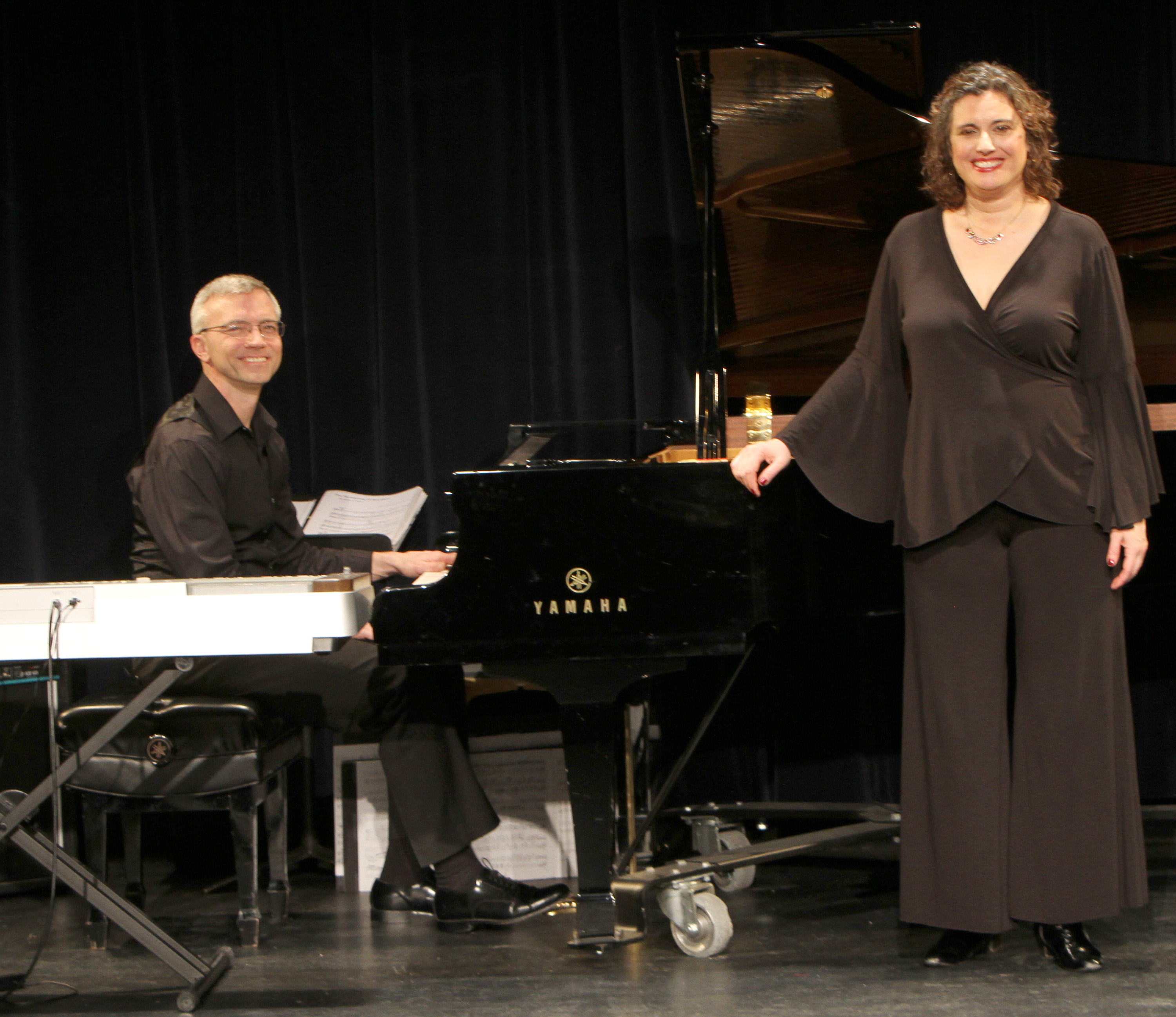

Soprano Karyn Levitt and pianist Eric Ostling will perform “In the Dark Times: Three 20th Century Austro-German Composers Who Worked with Bertolt Brecht,” a lecture-concert that features the collaborated works of poet Bertolt Brecht, composers Kurt Weill, Hanns Eisler and Paul Dessau, and translator Eric Bentley, in Porter House on Tuesday, March 10th at 4:30 p.m. as part of this year’s Copeland Colloquium.
Born in 1898, Brecht began writing plays during World War I while enrolled in medical school to avoid the military draft. Following the war, he became the dramaturg at the leading Deutsches Theater in Berlin, where he had much inspiration to begin developing and creating his own works for the theater. In this post, during the innovative years of the Weimar Republic, he collaborated with musician Kurt Weill to write some of his most famous early operas, including “The Threepenny Opera” and “The Rise and Fall of the City of Mahagonny.”
It was at this time that he also began to forge a longer lasting collaboration with Hanns Eisler, and the relationship between these two men focused mostly on poems and songs. Although Eisler did write the music for many of Brecht’s plays, their songs in particular gained popularity quickly, as they focused on the lives of the lower classes in society such as the unemployed and working poor.
With the Nazis gaining power in Germany in the 1930s, many of Brecht’s works were banned across the country, and consequently Brecht fled Germany to escape any impending persecution. He moved around Scandinavia before settling in Denmark, where he remained until he gained a visa to enter the United States in 1941. While in Denmark, Brecht continued his collaboration with Eisler, and his works of Exilliteratur reflected not only his own exile from Germany but also his opposition to the Fascism movement that was gaining traction there.
Coming to the United States did give Brecht more artistic freedom to explore his own beliefs, and while in the U.S. he began collaborations with Paul Dessau and Eric Bentley. Paul Dessau wrote the musical scores to some of Brecht’s most famous works of musical theater, including The Good Person of Szechwan and The Caucasian Chalk Circle; he also wrote the music to some of Brecht’s other songs and poems.
Brecht met Eric Bentley quite by chance, while Bentley was working as a professor at University of California Los Angeles in 1942, and a series of agreements to translate some plays and poems led Bentley’s career to be very much focused on the translation of Brecht’s works after his passing. A professional critic and former professor at Columbia University, Bentley is now 98 years old and is considered the world’s foremost authority on Brecht.
Brecht’s time in the United States allowed him to better explore his own beliefs. Opposed to Fascism, Brecht studied Marxism and socialism, and was a committed Marxist ever since reading Das Kapital in 1926; he claimed that understanding Marxism helped him better to understand his own plays. Many of his later works reveal his personal struggle to comprehend and articulate his own beliefs, especially after being blacklisted and having to testify in front of the House Un-American Activities Committee. He returned to Europe in 1947, first to Switzerland and then to East Germany, where he remained supportive of local socialism movements until his death in 1956.
In 1967, Bentley consolidated many of Brecht’s songs and poems that were put to music by Weill, Eisler and Dessau into The Brecht-Eisler Song Book, which includes the works that Karyn Levitt and Eric Ostling will be performing at Amherst next week. Bentley coached both of them on their performances of these works, so as to best reflect the moods and emotions that Brecht himself wished to convey.
I spoke with Bentley over winter break to discuss his own translation strategy and Brecht’s legacy. He talked about the layers of meaning within Brecht’s works: Brecht’s German texts contain a layer of meaning, then setting the text to music adds another layer, as does translation and as does performance Bentley cautioned about writing literal translations, especially of poetry, because they all too often became too semantic in the story that they tried to tell, and described that, in an effort to uphold the transformative nature of these works, the need to keep them fluid.
“Translation of poetry, whether or not it’s been close to the original, has to itself be poetic and have poetic power, if the original has poetic power,” Bentley said during our discussion. “If there’s a joke in the dialogue, and when you translate it, it isn’t funny, you have to substitute a joke that is funny in the language you’re speaking. If you carry that principle out, it justifies a lot.”
Levitt and Ostling’s performance adds another layer of meaning to these works, by bringing them to life while engaging with their audience to better convey the emotion contained within these works. The songs that they perform have strength in the messages they convey about individuals, society and ideas. Like the other events part of this year’s Copeland Colloquium, this performance enables us to ask about the power of language and to explore the art of translation while also being exposed to literary masterpieces.